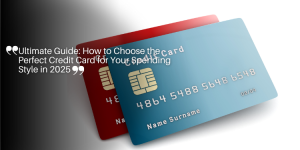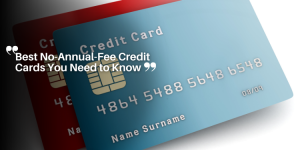Best credit cards for students

The best credit cards for students offer no annual fees, rewards programs, and help build credit when used responsibly, making them valuable financial tools for managing expenses.
Best credit cards for students play a significant role in helping you build a solid financial foundation while studying. Have you ever wondered how a credit card can benefit your financial journey? Let’s explore important aspects of student credit cards and what they can do for you.
Understanding credit cards for students
Understanding credit cards for students can be an important step in managing your finances. Knowing how these cards work helps you make informed choices.
The first thing to consider is what a credit card is and how it can help you build your credit history. Credit cards allow you to borrow money, up to a limit, to make purchases. When you pay off the borrowed amount, you often have the chance to earn rewards or build a positive repayment history.
Benefits of Credit Cards for Students
There are several advantages to having a credit card as a student. They include:
- Building credit history for future loans and mortgages.
- Earning rewards like cash back or travel points.
- Gaining financial emergency access when needed.
Additionally, responsibly using a credit card can teach valuable money management skills. Tracking your spending with a credit card gives you insights into your habits and helps you budget wisely.
How to Choose the Right Credit Card
When selecting a credit card, consider factors like interest rates, annual fees, and rewards programs. Understanding these elements lets you find a card that fits your financial needs. Look for cards that cater specifically to students, as they often offer lower fees and better rewards.
In conclusion, understanding credit cards for students is crucial for financial success. Choose wisely to enjoy the benefits while managing your money effectively.
Benefits of using credit cards responsibly
The benefits of using credit cards responsibly are numerous and can greatly enhance your financial profile. When managed well, credit cards can boost your credit score and help you develop smart spending habits.
One critical advantage is that responsibly using a credit card helps build your credit history. This history is important for future loans, such as auto loans or mortgages. A good credit score can save you money in the long run by qualifying you for lower interest rates.
Financial Flexibility
Credit cards provide a level of financial flexibility that can be very useful for students. They allow you to make purchases now and pay for them later, which can be helpful in emergency situations. When you use your card wisely, you can even earn rewards, such as cash back or travel points, which can be beneficial.
- Access to immediate funds when needed.
- Ability to make larger purchases and pay over time.
- Opportunities to earn rewards and bonuses.
It’s also essential to be aware of spending limits and repayment terms. Paying your balance in full each month ensures you avoid high interest charges. This practice not only saves money but also reinforces responsible financial behavior.
Protection Against Fraud
Another benefit of credit cards is the fraud protection they offer. Most credit cards come with zero liability policies. This means if your card is stolen or fraudulently used, you won’t be held financially responsible as long as you report it promptly. This feature provides peace of mind as you make purchases.
In summary, understanding the benefits of using credit cards responsibly can greatly enhance your financial well-being. Managing your credit wisely leads to better financial opportunities and security.

Top student credit cards for building credit
Finding the top student credit cards for building credit is essential for establishing a solid financial future. These cards cater specifically to students, offering benefits that can help you start your credit journey.
When choosing a credit card, look for options that have no annual fees and low interest rates. Some cards also provide rewards for purchases, which can enhance your experience while studying. Here are a few cards that stand out:
Recommended Cards
- Discover it® Student Cash Back – This card offers 5% cash back on rotating categories and a 1% flat rate on all other purchases.
- Journey Student Rewards from Capital One – Earn 1% cash back on all purchases, and it increases to 1.25% if you pay your bill on time.
- Chase Freedom® Student Card – Provides 1% cash back on every purchase, with access to rewards and benefits as you build your credit.
Each of these cards can help you establish a credit history while making everyday purchases more rewarding. Additionally, using these cards responsibly allows you to learn about credit management effectively.
Building Credit Wisely
To build credit wisely with these cards, it’s vital to pay your balance in full every month. This practice prevents accruing interest and showcases your ability to manage debt. Monitoring your credit score regularly is another important step, as it helps you track your progress.
Being a responsible credit card holder offers long-term benefits. It can open doors to better loan opportunities in the future, such as lower mortgage rates and more favorable financing terms.
Tips for managing credit card debt as a student
Managing credit card debt as a student is crucial for your financial health. Understanding how to handle these debts can lead you to a more secure financial future.
One effective strategy is to create a budget that incorporates your monthly expenses, including your credit card payments. A clear budget helps you see where your money goes and keeps your spending in check. Always aim to spend less than you earn to avoid debt accumulation.
Payment Strategies
Using smart payment strategies can significantly reduce your credit card debt. Here are some tips:
- Pay more than the minimum: Paying only the minimum keeps you in debt longer. Aim to pay more each month to reduce your balance faster.
- Set up reminders: Use calendar reminders or alerts on your phone to ensure you make payments on time.
- Consider consolidating debt: If you have multiple cards, look into consolidating your debt with a lower interest loan to save on interest costs.
Staying organized can also help you manage your credit card debt. Keep track of due dates and amounts owed to avoid missed payments. Consider using apps that track expenses and help manage your bills effectively. This approach prevents debts from piling up.
Building Good Habits
Developing good financial habits is essential for long-term success. This includes regularly reviewing your spending habits and understanding your credit card statements. Look out for any fees or unexpected charges that can add up quickly. Learning how to read your credit card statements enables you to catch mistakes and understand your charges better.
In summary, the key to managing credit card debt as a student is to create a solid plan. Focus on budgeting, making timely payments, and developing good financial habits for lasting success.
In conclusion, understanding and managing credit cards effectively is vital for students looking to build a strong financial future. By choosing the right credit card, practicing responsible usage, and developing solid budgeting habits, you can set yourself up for success. Remember that timely payments and smart spending are key to avoiding debt and enhancing your credit score. Take control of your finances today to enjoy the benefits of credit tomorrow!
FAQ – Common Questions About Credit Cards for Students
What is the best way to manage credit card debt as a student?
To manage credit card debt effectively, create a budget, pay more than the minimum balance, and keep track of your spending.
How can I build my credit as a student?
You can build your credit by using a student credit card responsibly, making timely payments, and keeping your balance low.
Are there any student credit cards with no annual fees?
Yes, many student credit cards do not have annual fees, making them ideal for students trying to save money.
What should I do if I can’t make my credit card payment?
If you can’t make a payment, contact your credit card issuer as soon as possible to discuss options, such as a payment plan or hardship assistance.







